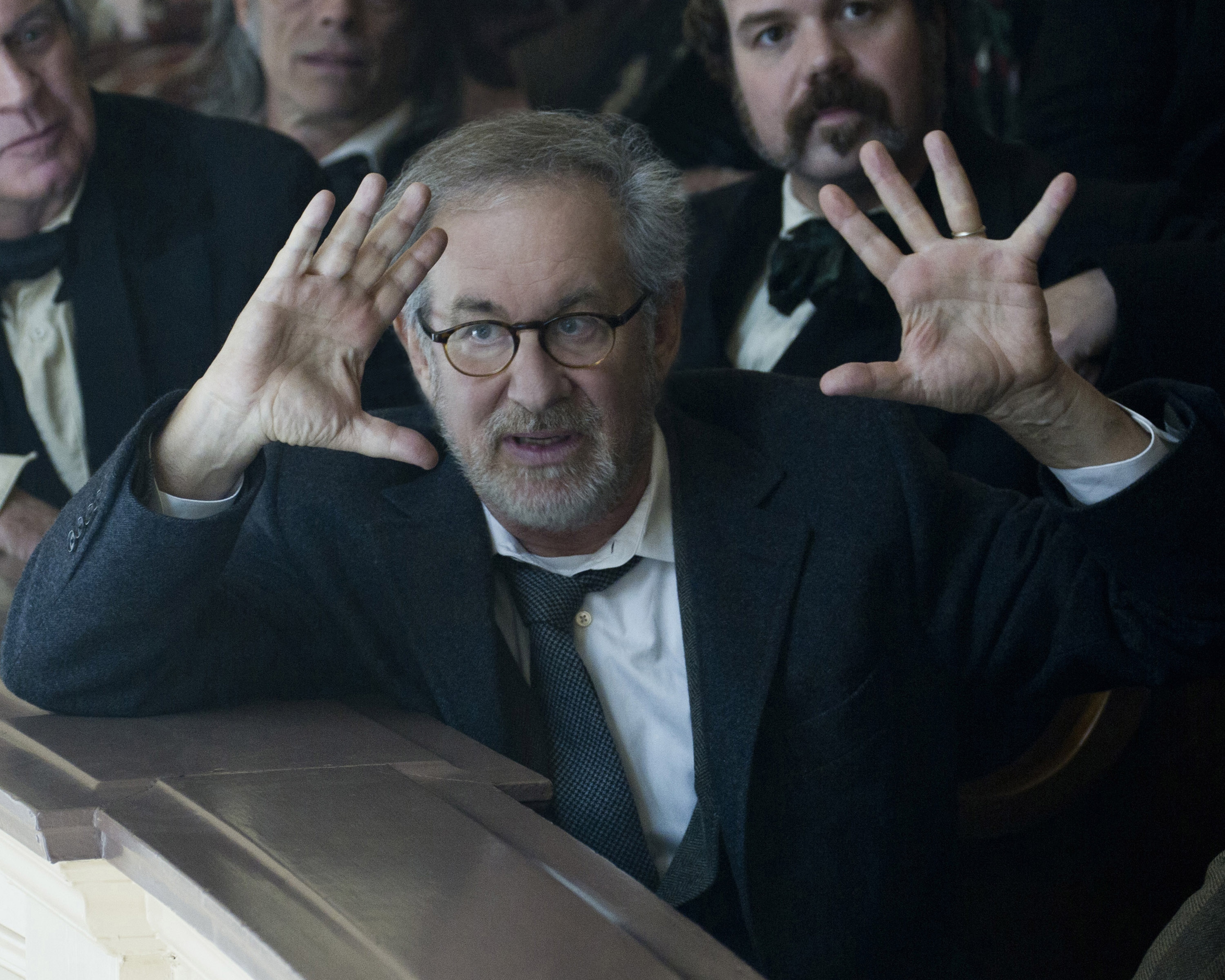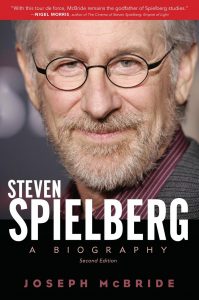
Steven Spielberg: A Biography (2nd Edition) by Joseph McBride takes a critical look at the filmmaker while updating the Spielberg story through 2010.

Spielberg is my favorite filmmaker of all time. If not for Jurassic Park, there’s a good bet that I wouldn’t even be doing what I do–whether that’s write about film working to transition into filmmaking. One of the things I’ve been doing of late when watching Spielberg films is watch the bonus content. These serve as to provide extra insight into films. But this is just one part of the Spielberg story.
In providing a critical look at the filmmaker, it also means to examine what’s true, half-true, or not even true at all. Among others, this comes in the form of the myth about Spielberg’s early days on the Universal lot. You know the stories by now. It turns out that a family friend helped to set up an appointment and the rest is history.
There’s so much over the course of some 530 pages that there is a lot to unpack. Through interviews and Spielberg’s own comments, McBride is able to get into the filmmaker’s mindset while growing up and during his career as a filmmaker. Broken families are a recurring theme in the Spielberg biography and McBride really breaks this down. While the book is not an authorized biography, Spielberg’s people said the project was kosher–which allowed for close friends and family to discuss the filmmaker. However, some people declined requests probably because of Spielberg planning an authorized project later on. This could have been the recent documentary but I don’t know.
Jaws. Close Encounters of the Third Kind. 1941. E.T. the Extra-Terrestrial. Indiana Jones. The Color Purple. Always. Hook. Jurassic Park. Schindler’s List. Amistad. Saving Private Ryan. Minority Report. Catch Me If You Can. The Terminal. War of the Worlds. Munich. Lincoln. Bridge of Spies. The Post. The list goes on and on.
Understandably, a lot can be said about why Spielberg didn’t get a directing Oscar until 1994. One argument that McBride explores is Spielberg’s involvement with Twilight Zone: The Movie. While the filmmaker wasn’t on set during the unfortunate tragedy in a segment directed by John Landis, he was a producer on the film. McBride goes in-depth on the incident more so than any other book that I’ve read. It’s possible that Oscar voters didn’t want to reward him because of this. Or maybe it’s because of all the films he did for entertainment purposes? In any event, a film like The Color Purple was seen as a big departure from previous work. And yet, not a single Oscar win! A DGA win but no Oscar.
One of the things I learned while reading Ed Sikov’s biography on Billy Wilder (quarantine book 14) is that the elder filmmaker wanted to direct Schindler’s List. Schindler’s List is the film that gave Spielberg his Oscar for directing but it’s honestly hard to imagine anybody else at the helm. Because of the film, more Holocaust survivors would open up and share their stories. This is why the film more so than anything else in his career is Steven Spielberg’s greatest legacy.
Steven Spielberg: A Biography is an essential read for any fan of the filmmaker.
Steven Spielberg: A Biography is available in bookstores.





